- Brazil (LGPD): Requires explicit consent, appointing a Data Protection Officer (DPO), and allows fines up to $10M or 2% of revenue.
- Mexico (LFPDPPP): Mandates privacy notices, secure data transfers, and penalties up to 320,000x the minimum wage.
- Argentina (PDPA): Focuses on database registration, written consent, and fines up to 5M pesos.
- Colombia (Law 1581): Demands express consent, international transfer rules, and fines up to 2,000x the minimum wage.
Quick Comparison Table
| Country | Primary Law | Maximum Penalty | Key Requirement |
|---|---|---|---|
| Brazil | LGPD | $10M or 2% of revenue | Appoint a DPO |
| Mexico | LFPDPPP | 320,000x minimum wage | Issue privacy notices |
| Argentina | PDPA | 5M pesos | Register databases |
| Colombia | Law 1581 | 2,000x minimum wage | Obtain express consent |
Key Steps for Compliance
- Obtain Employee Consent: Use clear, localized privacy notices and document approval.
- Strengthen Security: Encrypt data, use multi-factor authentication, and monitor access.
- Respect Employee Rights: Allow access, updates, and deletion of personal data.
- Follow Cross-Border Rules: Ensure data transfers meet local protection standards.
Staying compliant reduces legal risks and builds trust with employees. The article below dives deeper into these practices and country-specific regulations.
Main Data Protection Laws by Country
Let’s dive into how key data protection laws across Latin America shape the handling of employee information. Each country has its own set of regulations, creating specific obligations for companies managing personal data.
Brazil’s LGPD Requirements
Brazil’s LGPD, in effect since September 2020 and inspired by the EU’s GDPR, outlines several requirements:
- Explicit consent is mandatory for collecting employee data.
- Companies must enforce strict security measures to safeguard personal information.
- A Data Protection Officer (DPO) is required for organizations dealing with sensitive data.
- Employees have the right to access, correct, or delete their personal data.
Non-compliance can result in penalties of up to 2% of a company’s Brazilian revenue or 50 million reais (around $10 million) per violation.
Mexico’s LFPDPPP Guidelines
Mexico’s Federal Law on Protection of Personal Data in Possession of Private Parties (LFPDPPP) provides clear rules for handling employee data:
- Employers must issue a privacy notice before collecting data.
- Personal data must only be retained for as long as necessary to meet its original purpose.
- Companies are required to implement technical and organizational security measures.
- Employee consent is essential for processing data, with extra care for sensitive information.
- Cross-border data transfers need specific contractual protections.
Violations can lead to fines ranging from 100 to 320,000 times the Mexico City minimum wage.
Argentina’s Data Protection Rules
Argentina’s Personal Data Protection Act (PDPA), one of the region’s earliest data protection laws, includes these key points:
- Databases containing personal information must be registered.
- Written consent is required for processing sensitive data.
- Strict regulations govern international data transfers.
- Data quality must be maintained through accuracy and regular updates.
- Employees can request access to their personal information.
Failure to comply can result in fines up to 5 million pesos and, in some cases, criminal penalties.
Colombia’s Law 1581 Standards
Colombia’s Law 1581 of 2012 sets clear rules for protecting personal data:
- Express consent is necessary for data collection.
- Sensitive personal information has additional protections.
- Companies must notify the Superintendence of Industry and Commerce (SIC) for certain types of databases.
- Employees can update, rectify, or delete their personal data.
- Strict guidelines apply to international data transfers.
Violations can lead to fines of up to 2,000 times the minimum monthly wage.
| Country | Primary Law | Maximum Penalty | Core Requirement |
|---|---|---|---|
| Brazil | LGPD | $10M or 2% revenue | DPO appointment required |
| Mexico | LFPDPPP | Up to 320,000x min. wage | Detailed privacy notice |
| Argentina | PDPA | Up to 5M pesos | Database registration |
| Colombia | Law 1581 | Up to 2,000x min. wage | Express consent needed |
Required Employee Data Practices
Follow LATAM data protection guidelines as detailed below.
Getting Employee Permission
Always secure clear and informed consent before collecting or using employee data. Here’s what to keep in mind:
- Use privacy notices in the local language that clearly explain how data will be used.
- Obtain separate, written approval for handling sensitive information.
- Keep records of consent through signed forms or digital acknowledgments.
- Allow employees to withdraw their consent at any time.
Required Security Steps
Once consent is obtained, protect employee data with strong security measures:
- Technical Controls
- Encrypt data both when stored and during transmission.
- Use access controls with unique user IDs.
- Regularly update software and apply security patches.
- Maintain dependable data backups.
- Organizational Measures
- Create written security policies.
- Train staff regularly on data protection practices.
- Develop plans to handle security incidents.
- Conduct routine data protection assessments.
Employee Data Rights
Employees have the right to access, update, delete, and transfer their data. To ensure compliance:
- Respond to verified data access requests.
- Correct any inaccurate information promptly.
- Delete data that is no longer needed.
- Provide data portability options when applicable.
Cross-Border Data Rules
When transferring data across national borders, take extra precautions:
- Verify that the recipient country meets adequate data protection standards.
- Use binding corporate rules or standard contractual clauses as safeguards.
- Keep detailed records of all cross-border data transfers.
sbb-itb-a3fbb4e
Data Access Control Methods
LATAM data protection laws emphasize restricting sensitive information to only those who are authorized. Below are methods to help enforce these restrictions effectively.
Role-Based Access Control (RBAC)
Use RBAC to ensure employees access only the data they need for their roles. Keep a documented record of access privileges and review them periodically to stay compliant.
Multi-Factor Authentication (MFA)
Add an extra layer of security by implementing MFA on platforms that handle employee data. This could involve a secondary verification method such as an SMS code, authenticator app, hardware key, or biometric scan.
Access Monitoring and Logging
Set up systems that track every access attempt, log user activities, and record any changes to data. These systems should also issue alerts for unusual behavior. Make sure to store logs in accordance with local legal requirements.
Regular Updates to Access Permissions
Review and adjust access rights routinely to account for role changes, new hires, departures, or emergency access needs. Maintain detailed records of all permission updates to ensure compliance.
Breaking the Rules: Costs and Enforcement
Failing to comply with LATAM data protection laws can lead to serious financial and operational consequences. Each country enforces its own set of penalties:
| Country | Penalty Details |
|---|---|
| Brazil | Penalties include fines tied to annual revenue and potential business suspensions. |
| Mexico | Violations may result in fines and even criminal charges. |
| Argentina | Fines can accumulate daily, along with operational restrictions. |
| Colombia | Fines are calculated using monthly wage benchmarks and may include operational suspensions. |
Local enforcement agencies are responsible for ensuring compliance and addressing violations.
Enforcement Agencies
- Brazil: The National Data Protection Authority (ANPD) investigates complaints and conducts audits.
- Mexico: The National Institute for Transparency, Access to Information and Personal Data Protection (INAI) provides guidance and ensures compliance.
- Argentina: The national data protection authority investigates breaches and monitors compliance.
- Colombia: The Superintendence of Industry and Commerce (SIC) handles enforcement and investigates violations.
Summary
Protecting employee data in LATAM requires strict adherence to regional laws and strong security practices. Companies should prioritize three key areas: compliance, technical safeguards, and risk management.
Key Compliance Steps:
- Secure clear consent and follow established security protocols.
- Respect employee data rights and adhere to transfer regulations.
- Keep detailed documentation of all processes.
Technical Safeguards:
- Use role-based access, multi-factor authentication (MFA), and logging tools.
- Regularly review access permissions.
- Continuously monitor system security.
Risk Management Practices:
- Comply with specific regulations in each country.
- Stay updated on enforcement standards.
- Conduct frequent compliance audits.
These strategies reduce legal risks and improve operational workflows. A dedicated compliance team, working closely with HR and IT, can manage data throughout the employee lifecycle effectively.
For remote teams across LATAM, a unified data protection approach simplifies compliance and improves operations. Ongoing training and regular security checks help teams stay aligned with changing regulations while maintaining productivity.
















